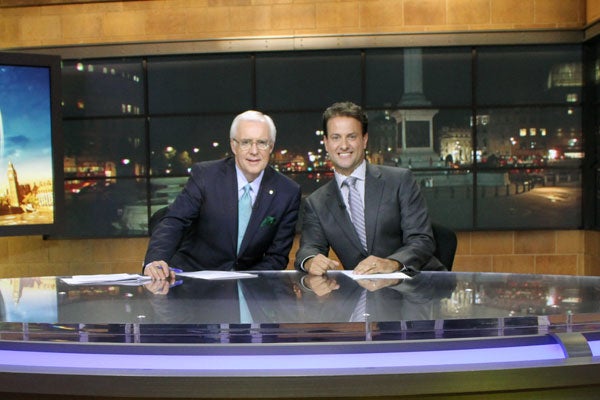
U of T welcomes science journalists to campus
Published: May 23, 2014
When dozens of reporters descend on the University of Toronto in early June, U of T researchers won’t simply be prepared; they’ll be eager.
From June 5 to 8, the U of T Science Engagement will play host to the annual conference of the Canadian Science Writers Association. Not only will the University serve as a venue for the conference activities; it will provide many of the featured speakers.
More than a dozen researchers will be volunteering their time to take part in panel discussions on such diverse subjects as human development and better living through technology. Greg Wells, an exercise physiologist at the Faculty of Kinesiology and Physical Education, will kick off the conference with a June 5 keynote address that is open to the public.
The conference will also feature unique sessions, such as a science “speed dating” event and a talk focusing on the parts played by the researcher, the communications professional and the journalist in bringing a story to public notice. In the speed dating session, scientists will have two minutes to pitch their research to a group of journalists and three minutes to answer questions; when the time expires, they’ll move on to another group of journalists and try their pitch again, hoping to interest at least one of the potential “dates” in their story.
 Professor Ray Jayawardhana, senior advisor to the U of T president on science engagement, sees real value in hosting the science writers on campus.
Professor Ray Jayawardhana, senior advisor to the U of T president on science engagement, sees real value in hosting the science writers on campus.
“Members of the CSWA, as professional science communicators, play a crucial role in raising public awareness of scientific research,” said Jayawardhana. “I hope that fostering links between scientists and journalists through gatherings like this will help raise both the quality and the quantity of science coverage in the media.”
He also sees it as an excellent opportunity to showcase Toronto’s science research talent.
“It's a terrific opportunity to share some exciting research highlights with an influential group of science communicators from across the country, and to introduce them to a number of our fabulous researchers,” Jayawardhana said.
Helen Lasthiotakis, the Arts & Science assistant dean who is leading the conference organization at U of T, anticipates that the tours of research facilities will prove very popular with the journalists. They will have the chance to visit such sites as the Toronto Centre for Phenogenomics (aka the Mouse House), the Centre for Vision Research at York University and the U of T Institute for Aerospace Studies.
“Seeing how research is actually done should inspire all sorts of different questions for the writers,” Lasthiotakis said. “When you’re in the lab, you think of questions you might not have when you’re discussing research in the abstract.”
Researchers from all three U of T campuses are involved in the conference. With all the amazing research being done in and around Toronto, “we could easily host this conference five years in a row,” said Lasthiotakis.
Professor Wells’ keynote address takes place at 6 p.m. on Thursday, June 5 in the Health Sciences Auditorium at 155 College St. It is open to the public.



